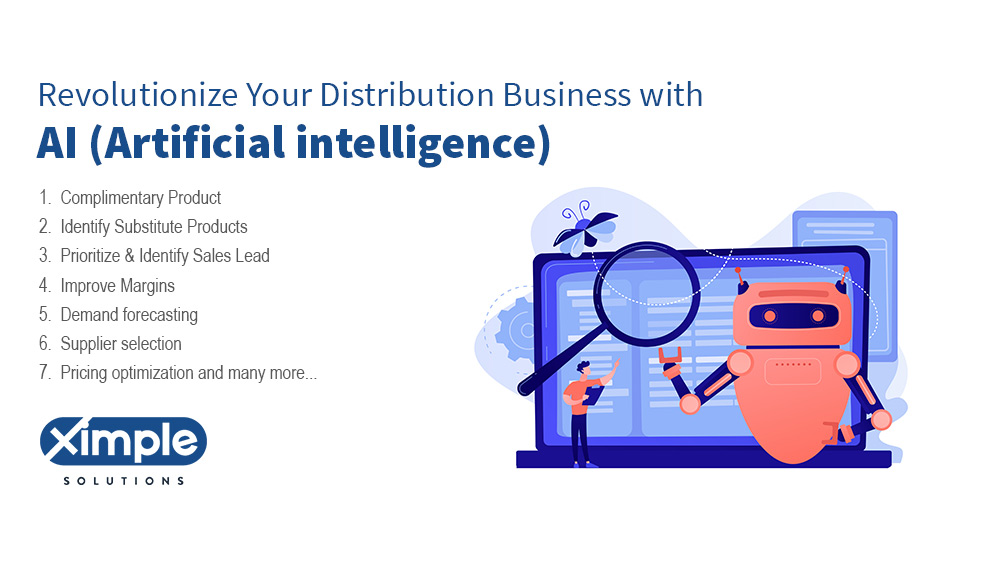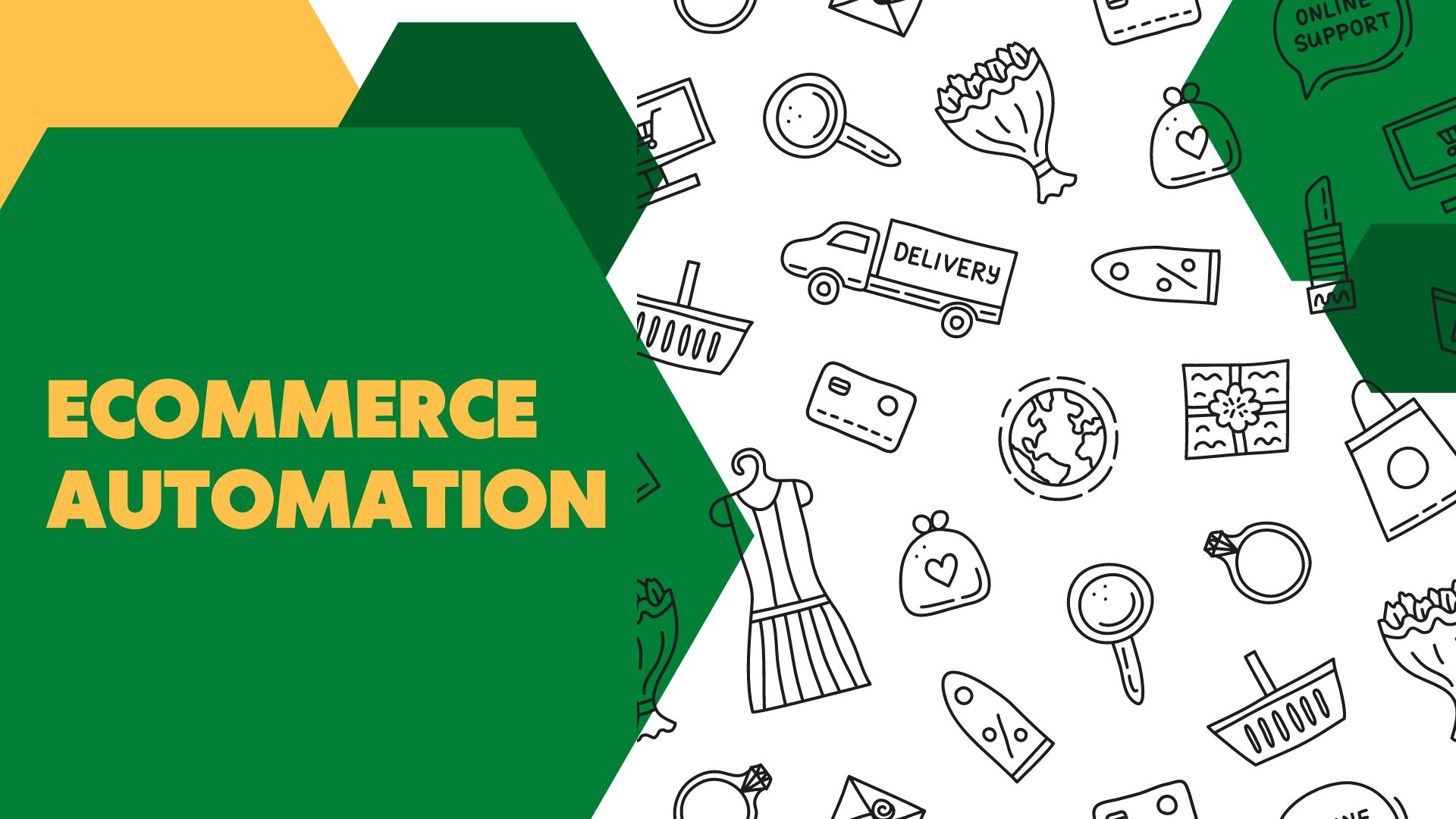Ecommerce automation streamlines and optimizes online business operations, increasing efficiency and reducing manual tasks. By leveraging technology to automate processes such as order management, inventory tracking, and customer support, businesses can save time and resources while improving overall productivity and customer experience.
In today’s competitive landscape, staying ahead in the ecommerce industry requires businesses to adopt innovative solutions to enhance their operations. Ecommerce automation is the key to achieving scalability and profitability, allowing businesses to focus on growth and expansion. From automating order processing and fulfillment to personalizing customer interactions, the implementation of ecommerce automation tools enables businesses to streamline their operations and deliver a seamless shopping experience.
With the rise of online retail, embracing automation is essential for businesses to remain competitive and meet the evolving demands of consumers.

Credit: www.facebook.com
Why Ecommerce Automation Is Important
Ecommerce businesses are constantly seeking ways to improve their operations and provide better experiences for customers. With the increasing demands of online retail, automation has become a crucial tool for streamlining processes, enhancing efficiency, and elevating the overall customer experience. Let’s delve into the significance of ecommerce automation and how it can transform the landscape of online retail.
Streamline Processes
Automation enables ecommerce businesses to streamline their operational processes, reducing manual tasks and optimizing workflows. By automating inventory management, order processing, and shipping logistics, businesses can minimize errors and save valuable time. This ensures that tasks are completed promptly and accurately, contributing to a more efficient and productive workflow.
Improve Efficiency
Implementing automation in ecommerce operations can significantly improve efficiency across various business functions. Automated systems can handle repetitive tasks such as data entry, invoice generation, and customer follow-ups, allowing employees to focus on more strategic and value-driven activities. This results in a more efficient use of resources and an overall increase in productivity.
Enhance Customer Experience
Automation plays a pivotal role in enhancing the customer experience within ecommerce platforms. By implementing automated order tracking, personalized product recommendations, and seamless communication channels, businesses can provide a more convenient and tailored experience for their customers. This personalized approach fosters customer loyalty and satisfaction, ultimately contributing to increased retention and higher revenue.

Credit: www.ximplesolution.com
Key Technologies Driving Ecommerce Automation
Ecommerce automation has revolutionized the way businesses operate, streamlining processes, enhancing customer experiences, and driving growth. Key technologies are at the forefront of this transformation, powering the automation capabilities within the ecommerce landscape. Understanding these technologies is essential for businesses looking to stay competitive in the digital marketplace.
Artificial Intelligence (ai)
Artificial Intelligence (AI) plays a pivotal role in ecommerce automation, enabling machines to mimic human intelligence and perform tasks with precision and efficiency. AI algorithms analyze vast volumes of data to derive insights, personalize product recommendations, and optimize pricing strategies. By leveraging AI, businesses can automate customer service interactions, anticipate demand patterns, and enhance targeted marketing efforts.
Machine Learning (ml)
Machine Learning (ML) empowers automated systems to learn and improve from experience without explicit programming. In ecommerce, ML algorithms can predict customer behavior, identify fraudulent activities, and optimize inventory management. By continuously refining processes based on data patterns, ML drives automation in product categorization, dynamic pricing, and predictive analytics, ultimately enhancing operational efficiency and driving sales.
Robotic Process Automation (rpa)
Robotic Process Automation (RPA) utilizes software robots to automate repetitive and rule-based tasks across ecommerce operations. RPA can streamline order processing, inventory synchronization, and data entry, minimizing errors and accelerating workflows. By automating routine activities, RPA enables businesses to allocate resources strategically, reduce operational costs, and improve overall productivity.
Benefits Of Ecommerce Automation
Ecommerce automation offers numerous benefits, streamlining business operations, improving efficiency, and saving time. It automates tasks like inventory management, order processing, and customer support, allowing businesses to focus on growth and providing a seamless shopping experience for customers.
Benefits of Ecommerce Automation Ecommerce automation has become increasingly popular among businesses of all sizes. With the rise of online shopping, streamlining and automating various processes has proven to be a game-changer for businesses looking to stay ahead of the competition. Here are some of the key benefits of implementing ecommerce automation.Increased Sales And Revenue
Automating your ecommerce processes can significantly contribute to increasing your sales and revenue. By harnessing the power of automation, you can optimize your online store to provide a seamless shopping experience for customers, encouraging them to make more purchases. Automation allows for efficient inventory management, ensuring that popular products are always in stock, reducing the chances of missed sales opportunities due to unavailable products. Furthermore, automating pricing strategies and promotions enables you to easily update and track discounts, flash sales, and time-limited offers. This helps to attract more customers and drive sales, ultimately increasing your revenue. By using automated email marketing campaigns triggered by customer actions, such as abandoned carts or successful purchases, you can also nurture leads and increase the chances of repeat purchases.Time And Cost Savings
One of the biggest advantages of ecommerce automation is the significant time and cost savings it offers. Automating repetitive tasks allows you and your team to focus on more strategic and high-value activities. For example, manual data entry and order processing can be time-consuming and prone to human errors. By automating these processes, you can streamline fulfillment, reduce errors, and minimize the need for labor-intensive tasks. Additionally, automation can simplify and speed up order fulfillment by integrating your ecommerce platform with your inventory management system and shipping providers. This eliminates the need for manual entry and reduces the risk of errors, ensuring that orders are fulfilled accurately and promptly. By minimizing the time and effort spent on these routine tasks, you can allocate more resources to other critical aspects of your business, such as marketing and customer service.Personalization And Customer Retention
Ecommerce automation empowers businesses to deliver personalized experiences that can greatly enhance customer retention. By leveraging customer data and behavior, you can create personalized recommendations, tailored product suggestions, and targeted marketing campaigns. This level of personalization makes customers feel valued and understood, increasing their engagement and loyalty to your brand. Automation also enables businesses to implement effective customer retention strategies. For example, setting up automated follow-up emails after purchases, requesting product reviews, or offering exclusive discounts to loyal customers can significantly improve repeat purchase rates. By nurturing relationships with your customers through targeted and relevant communication, you can increase customer satisfaction, build brand loyalty, and generate repeat business. In conclusion, ecommerce automation brings a multitude of benefits to businesses, including increased sales and revenue, time and cost savings, as well as improved personalization and customer retention. By utilizing automation tools and technologies, businesses can streamline their operations, enhance the customer experience, and gain a competitive edge in the ever-evolving world of ecommerce.Implementing Ecommerce Automation Strategies
Implementing ecommerce automation strategies can significantly streamline your business operations and improve efficiency. Automation allows you to eliminate manual tasks, saving time and resources while increasing productivity. In this blog post, we will explore the key steps to effectively implement ecommerce automation strategies. By following these steps, you can optimize your online store, enhance customer experience, and boost your sales.
Evaluate Your Business Goals
To begin implementing ecommerce automation strategies, it is crucial to evaluate your business goals. Identify the pain points in your current processes and determine the specific areas where automation can bring the most benefit. Consider your overall objectives, such as increasing sales, improving customer service, or reducing errors. By aligning your automation efforts with your business goals, you can prioritize the tasks that need automation the most.
Identify Automation Opportunities
Next, you need to identify automation opportunities within your ecommerce operations. Look for repetitive tasks or manual processes that can be easily automated without sacrificing quality or customer satisfaction. For example, order processing, inventory management, customer support, and marketing activities are common areas where automation can make a significant impact.
Choose The Right Tools
Once you have identified the areas for automation, it is essential to choose the right tools to implement your strategies. Research and evaluate different automation solutions available in the market, considering factors such as cost, features, ease of use, and scalability. Look for tools that integrate seamlessly with your existing systems and provide comprehensive functionality to address your unique business requirements.
Plan And Execute The Implementation
After selecting the appropriate automation tools, it’s time to plan and execute the implementation. Start by creating a detailed roadmap outlining the sequence of tasks and milestones involved in the automation process. Assign responsibilities to team members and establish a timeline for completion. During this stage, it is crucial to communicate with your team and provide adequate training to ensure a smooth transition to the automated processes.
By following these steps, you can successfully implement ecommerce automation strategies and achieve the desired results. Remember to regularly evaluate the effectiveness of the automation solutions and make necessary adjustments to maximize efficiency and achieve your business goals.

Credit: www.facebook.com
Frequently Asked Questions Of Ecommerce Automation
What Is Ecommerce Automation And How Does It Work?
Ecommerce automation refers to the use of software or tools to streamline and simplify online store operations. It involves automating tasks such as inventory management, order processing, customer support, and marketing campaigns. By eliminating manual processes and reducing human error, ecommerce automation helps businesses operate more efficiently and effectively.
What Are The Benefits Of Implementing Ecommerce Automation?
Implementing ecommerce automation can bring several benefits to online businesses. It can save time and resources by automating repetitive tasks, improve accuracy and minimize errors in order processing, enhance customer experience through personalized automation, increase productivity and scalability, and ultimately drive sales and revenue growth.
What Tasks Can Be Automated In An Ecommerce Business?
Many tasks in an ecommerce business can be automated, including inventory management and restocking, order processing and fulfillment, personalized email marketing campaigns, customer support and live chat, data analysis and reporting, abandoned cart recovery, and product pricing and discounts. Automation can streamline these processes, reduce manual effort, and enable businesses to focus on growth strategies.
How Can Ecommerce Automation Improve Customer Experience?
Ecommerce automation can improve customer experience in various ways. It enables personalized communication and targeted marketing campaigns based on customer preferences and past behaviors. It automates order processing and shipping notifications, providing customers with real-time updates. Automation also facilitates easy returns and refunds, and can offer personalized recommendations based on browsing and purchase history, creating a seamless and personalized shopping experience.
Conclusion
In a rapidly evolving business landscape, implementing ecommerce automation has become a necessity. With its ability to streamline operations, reduce costs, and enhance customer experiences, automation empowers businesses to stay ahead in the competitive market. From inventory management to order processing and customer support, automation tools offer efficiency and scalability.
By embracing ecommerce automation, businesses can unlock new growth opportunities and achieve sustainable success. Stay ahead of the curve and revolutionize your ecommerce operations with automation today.

Olga L. Weaver is a distinguished figure in both the realms of real estate and business, embodying a unique blend of expertise in these interconnected domains. With a comprehensive background in real estate development and a strategic understanding of business operations, Olga L. Weaver has positioned herself as a trusted advisor in the complex intersection of property and commerce. Her career is marked by successful ventures in real estate, coupled with a keen ability to integrate sound business principles into property investments. Whether navigating the intricacies of commercial transactions, optimizing property portfolios, or providing strategic insights into market trends, Olga L. Weaver’s expertise encompasses a wide spectrum of both real estate and business-related topics. As a dual expert in real estate and business, she stands as a guiding force, empowering individuals and organizations with the knowledge and strategies needed to thrive in these intertwined landscapes. Olga L. Weaver’s contributions continue to shape the dialogue around the synergy between real estate and business, making her a respected authority in both fields.


